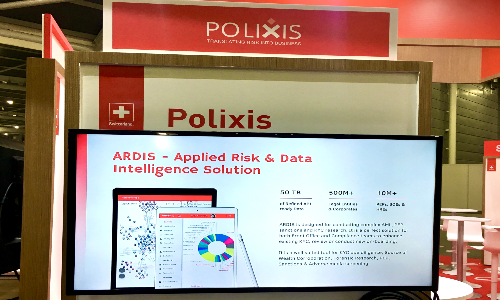Polixis: Beware of Voids in Sanction-Linked Risks
Banks are facing increasing compliance challenges due to growing geopolitical tensions. They might be housing sanction-linked risks they don’t know about, Polixis' COO Diana Babayan told finews.asia.
Geopolitical tensions around the world have resulted in growing sanctions and increased compliance risk at global financial institutions. In the US, for example, a sanctioned individual who owns at least 50 percent of an entity's property or an interest in a property is considered a blocked person, according to the Treasury Department's Office of Foreign Assets Control (OFAC). This increases risks at banks due to the difficulty of identifying assets that meet this threshold.
The issue is particularly pressing for global banks since sanctions against Russia are of unprecedented nature, and the economy is times bigger than that of any other previously sanctioned jurisdiction.
«Right now, there are not many solutions which are able to give you a good coverage on, for example, Eastern Europe,» Polixis chief operating officer (COO) Diana Babayan told finews.asia during this week's Singapore Fintech Festival 2022 (pictured below).

Complex Ownership Structures
Given the complex ownership structures which many global banking clients use, the need for sophisticated compliance solutions to avoid sanction violations is growing. This is not only limited to banks that wish to onboard potentially risky clients but even those that may have done so by accident.
OFAC has already come up with several enforcement decisions that are very interesting from a tech perspective, where the provider has actually failed to detect the risk. Namely the case of Amazon’s fine in services in connection to Crimea, or Cobham Holding’s case of Almaz Antey Telecommunications. In both cases legacy approaches have failed, and those approaches are widespread across the industry.
«We don’t just provide the data only for sanctioned entities, but we need to be very quick to incorporate the linkages of the sanctioned entities, so our users don’t make a mistake and engage in transactions with sanctioned entities,» Babayan explained.
Post-Covid Plans
Moving forward, Polixis is seeking expansion in Asia to capitalize on the post-Covid momentum, especially with existing clients from Switzerland – its home market – with offices in Singapore.
«After two years of quite stagnant business climate, it is very good to see our clients and other businesses starting to expand to other regions and put in more money where they can achieve greater efficiency in their offerings,» Babayan said. «Our long-term goal is to establish a presence in Singapore because it is the center of the financial sector in Asia and there are many institutions working here. To stay current, we have to have a physical presence, not only an online presence.»
Polixis is a Swiss RegTech and advisory firm providing major banks and companies with anti-money laundering, sanction and know-your-client data. It is the only Swiss independent full-circle Compliance Data provider (UBOs, PEPs, sanctions and more).
finews.asia is a supporting media partner of the Singapore Fintech Festival.




























